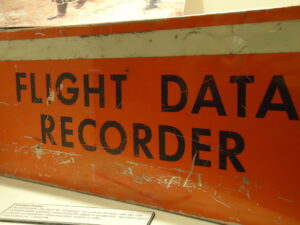 In any tragedy involving a large aircraft, an investigator will immediately seek to examine the aircraft’s flight data recorder or “black box.” There, the investigator will find recordings of cockpit conversations, flight data information, and environmental conditions that provide insight into that aircraft’s journey.
In any tragedy involving a large aircraft, an investigator will immediately seek to examine the aircraft’s flight data recorder or “black box.” There, the investigator will find recordings of cockpit conversations, flight data information, and environmental conditions that provide insight into that aircraft’s journey.
In a similar manner, the final chapter of the Biblical book of 2 Timothy also serves as a kind of “black box.” With time running out on his earthly life, Paul the Apostle penned these last words of instruction and encouragement to his young friend Timothy. This message, written around A.D. 64-66, provides us with insight into Paul’s mindset during that period. The resulting chapter is intensely personal and may represent the last words ever written by the Apostle Paul…
“I charge you therefore before God and the Lord Jesus Christ, who will judge the living and the dead at His appearing and His kingdom” (2 Timothy 4:1).
To “charge” someone in this context means, “to impose a duty, responsibility, or obligation…” (1) We should note that this charge was not a casual request or appeal. Instead, it represented a formal decree, much like the directive that a commanding officer might issue to a subordinate. One commentary expands upon this definition with some additional information: “A charge is more than a command for a charge carries with it the moral obligation to be carried out.” (2)
Furthermore, Paul acknowledged that he issued this charge in the presence of “…God and the Lord Jesus Christ.” In other words, Paul recognized that he was answerable to God for the things he was about to say. This should draw our attention to the solemn nature and significance of this verse…
“It would be difficult to see how Paul could have made his charge to Timothy any more weighty (cf. 1Ti_5:21; 1Ti_6:13). He adjured Timothy, not only in the name of God and of Christ, but in the light of the coming judgment, Christ’s return (epiphaneian, appearing; cf. 1Ti_6:14; 2Ti_4:8; Tit_2:13), and the establishment of His millennial kingdom.” (3)
Another author identifies the critical nature of this passage…
“These words are a challenge for all of us to be faithful and diligent in the work of the Lord, and to decide what we are going to do about what we know.” (4)
Before we turn our attention to Paul’s directive in the following verse, we’ll first pause to consider this reference to “…God and Christ Jesus, who is going to judge those who are living and those who are dead” (GW). We’ll take a closer look at the various aspects of that judgment next.
Image Credit: “FLIGHT DATA RECORDER” by André Gustavo Stumpf is licensed under CC BY 2.0
(1) The American Heritage® Dictionary of the English Language, Fifth Edition copyright ©2020 by Houghton Mifflin Harcourt Publishing Company. All rights reserved. Retrieved 06 September 2021 from American Heritage Dictionary Entry: charge (ahdictionary.com)
(2) Hindson, E. E., & Kroll, W. M. (Eds.). (1994). KJV Bible Commentary (p. 2515). Nashville: Thomas Nelson.
(3) John F. Walvoord and Roy B. Zuck, Bible Knowledge Commentary p. 757
(4) Dick Woodward, Mini Bible College Study Booklet #14 Galatians, Ephesians, Philippians, Colossians, I and II Thessalonians, I and II Timothy, Titus and Philemon [pg.38] https://mbc.icm.org/

